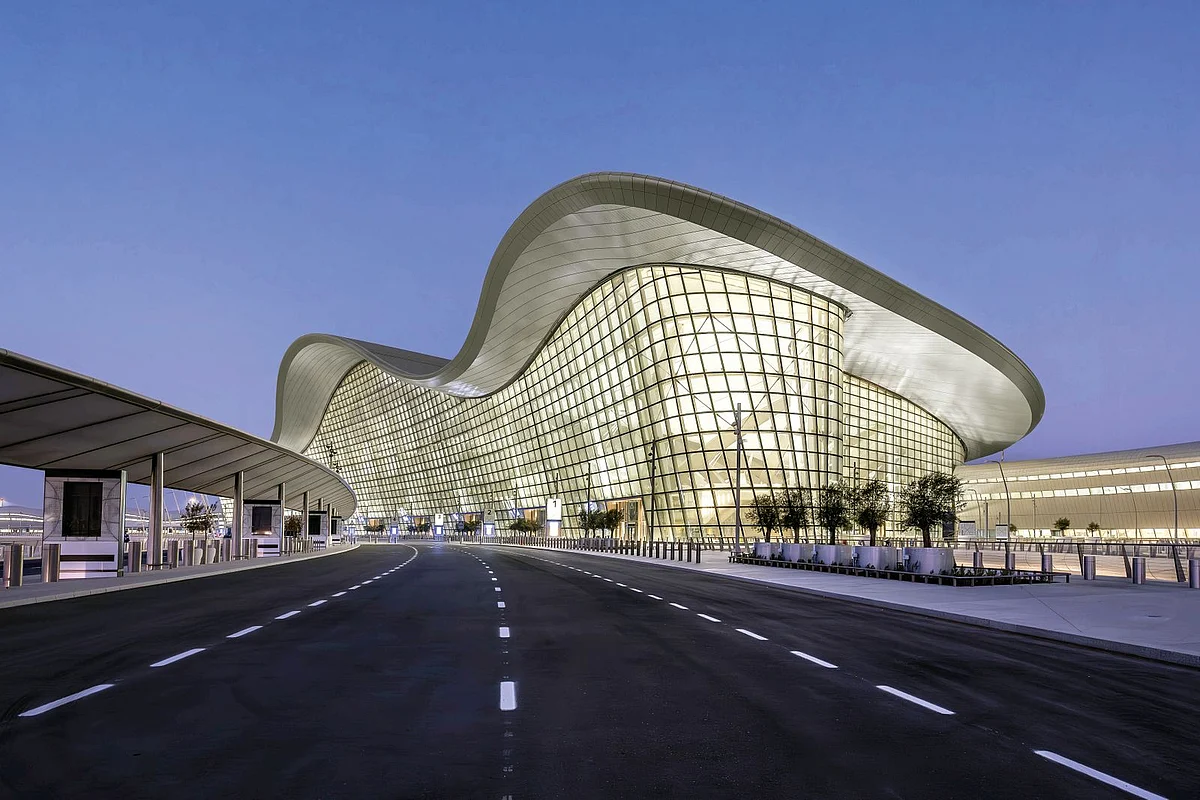
UAE: Facial Recognition To Speed Up Checkpoints At Abu Dhabi Airport
Long queues at passport control and boarding gates could soon be a thing of the past at Zayed International Airport, as new biometric systems using facial recognition are being rolled out across all passenger checkpoints.
The system promises faster, contactless processing and will soon include transit passengers. Biometric data will be gathered at the departure airport so that transfer passengers arriving in Abu Dhabi can move seamlessly through the terminal - giving them more time to enjoy airport facilities rather than waiting in queues.
Recommended For YouElena Sorlini, Managing Director and CEO of Abu Dhabi Airports, said the facial recognition system is“non-intrusive, fast and seamless”, helping reduce process times and increase capacity while improving the overall travel experience.
Stay up to date with the latest news. Follow KT on WhatsApp Channels.
“Today we have implemented biometric solution based on face recognition in five out of the nine touchpoints of the customer journey,” she added.
“We are rolling out those solutions also to the other four. The next step is really working on the transfer passengers... we have a trial as we speak, and hopefully next year we can announce a full rollout to the nine touchpoints.”
Next expansion by 2032Less than two years after the opening of Terminal A, Zayed International Airport is already preparing for its next expansion to accommodate rapid passenger growth.“We opened in November 2023, and at the first board meeting I brought the news that we had to think about expansion,” Sorlini noted.
“Our theoretical capacity is 45 million passengers... Based on Abu Dhabi's tourism growth plans, we know that by 2032, we need to have the expansion ready. We are already working on the detailed master plan and planning to start literally in a couple of years.”
Passenger traffic at the airport has nearly doubled since 2022, surging from 17 million to an expected 33 million this year. Sorlini said the opening of Terminal A in 2023 was the key catalyst, unlocking capacity and supporting the emirate's broader economic and tourism growth.
“We have experienced tremendous growth since the opening of the new terminal in 2023... We grew 44 percent that year, 28 percent last year, and year-to-date we're growing 33 percent,” she explained.“The new terminal has unlocked capacity and supported the demand because we are serving what Abu Dhabi is doing in terms of trade and especially tourism.”
Abu Dhabi Airports is also deploying AI-powered systems to predict operational disruptions and further advance toward a fully biometric, paperless passenger journey.“We want to use AI to better predict what is happening at the airport, and how we can react in a better way to minimise disruptions for our passengers and airlines.”
Sorlini said the company is testing a digital twin platform that mirrors the airport ecosystem, using data shared by airlines, ground handlers and other partners.“Through AI-powered solutions, you start to study and learn, and you are able to predict where you're going to see certain constraints in capacity - or certain behaviours that keep happening, like an airline that is always late - and mitigate before they happen.”
The system allows the airport to redeploy resources dynamically to reduce delays and costs associated with disruptions.“These events are extremely expensive for airlines, for ground handlers, and for everybody else who's operating at the airport.”
Looking ahead, Sorlini said the goal is to use AI not only for operations but also to create a personalised experience for travellers.“We want to keep investing in technology that enhances the customer journey - with retail, lounge use, and one-to-one offers,” she explained.“Our app will be used more and more to communicate with passengers - letting them know where to park, check in, queue length, and time to gate - so that they can be relaxed and enjoy the experience.”
Reimagining the passenger of the futureAccording to Sorlini, travellers' expectations are rising faster than the aviation industry can adapt, adding that airports must rethink how they treat passengers.“Expectations are growing quite rapidly,” she explained.
“The industry tends to process passengers as transactions because of capacity limits, but we must remember they are not the problem - they are the customer.” She noted that technology will play a crucial role in meeting those rising expectations and ensuring that each journey becomes an experience rather than a process.
“Experience is the word,” she added.“We're constantly thinking how to improve the experience and make it memorable - not only for departing passengers, but for those arriving in Abu Dhabi as well.”

Legal Disclaimer:
MENAFN provides the
information “as is” without warranty of any kind. We do not accept
any responsibility or liability for the accuracy, content, images,
videos, licenses, completeness, legality, or reliability of the information
contained in this article. If you have any complaints or copyright
issues related to this article, kindly contact the provider above.

















Comments
No comment